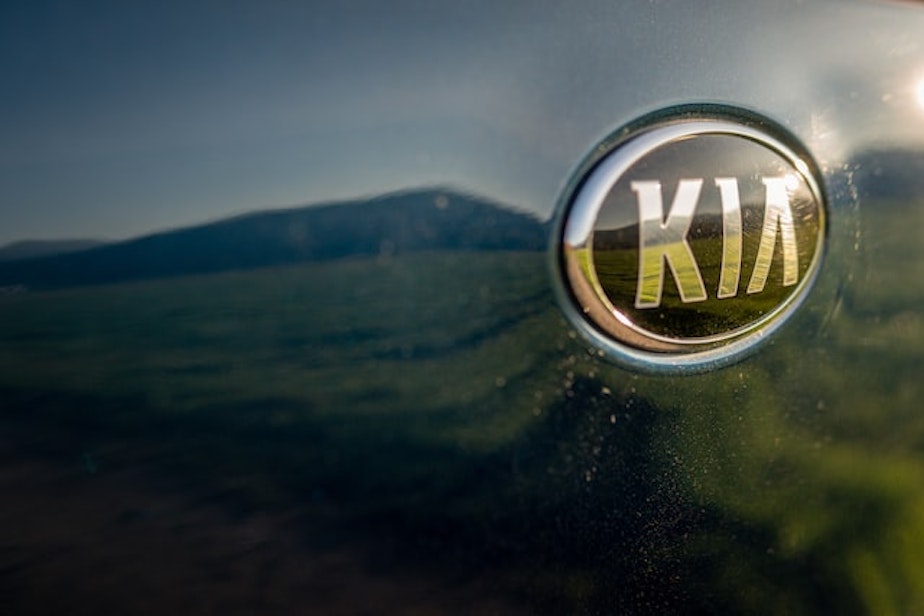Worried about your Kia or Hyundai being stolen? Try this

A series of videos posted on social media have gone viral for showing people how to steal recent models of Kias and Hyundais, using nothing more than a flathead screwdriver and a USB cord.
There’s a reason these cars are so easy to steal.
Some Kias produced between 2011 and 2021, and some Hyundais built between 2015 and 2021 don’t contain an engine immobilizer, or a theft deterrent system. An immobilizer is basically an electronic security device that only recognizes one car key, the one the car is coded to. This prevents someone from hot-wiring your car.
Nolan Bailey is the manager at Emily’s Garage, a full service auto repair shop in Tacoma. From what he’s observed, people are definitely following the instructions.
"When that happened, I think we had at least four or five different Kia and Hyundai models towed in to our lot, all damaged almost exactly the same way," Bailey said.
If you own one of the models in question, Bailey suggests parking in a locked garage, so your car is less of a target. Or consider getting a security club or a boot, because often just seeing either deterrent is enough to stop a thief from trying their luck.
This isn’t the first TikTok trend that’s impacted local car owners, he pointed out. Last year saw a huge rise in catalytic converter thefts after viral videos detailed how to steal those.
Sponsored
These days, stolen Kias and Hyundais are coming in with extensive and pricey repair needs.
Bailey said repair costs for cars stolen in this way typically range between $700 and $1,500 dollars. And it may also take a long time to get your car back from the garage.
"Some of these cars are so new that all the parts have to come from the dealership," Bailey said. "The worst part of the situation is, these parts are backordered for sometimes six to eight weeks."
Seattle City Attorney Ann Davison announced last week that she's suing the two car manufacturers, and noted that in July 2022 alone, Seattle Police saw a 620% increase in stolen Kias and Hyundais.
"What really it boils down to is a car manufacturer who has chosen to cut corners and costs and shifted the burden of that on to consumers," Davison said. "Now the dramatic rise in the number of cars that are stolen are these models. It really has risen to a level that I felt it was need it was necessary for me to take action."
Sponsored
Trends like this social-media fueled theft of Kia and Hyundais aren’t exactly new. Honda Civics were the No. 1 most stolen car in the U.S. for many years. Now this dramatic increase in stolen Kias and Hyundais looks to rival those numbers.
So how does the industry respond? We asked New York Times automotive contributor Tom Voelk to weigh in.
"Obviously, a suit like this does bring attention to the issue and federal regulators at the Department of Transportation, who will be able to take a look at this," Voelk explained.
Voelk has spoke to both Kia and Hyundai about the missing immobilizer technology in these models, and said that they've apologized.
"They are doing things to help consumers out through law enforcement," he said. "They're offering wheel immobilizers, basically The Club."
Sponsored
Both manufacturers are making security kits available at a lower cost to drivers. There's also a software patch that they're going to be rolling out hopefully in the next week.
In the end, Tom Voelk said that market pressure will be the driving force to get car manufacturers to change.
"Yeah, the manufacturer does have a baseline responsibility that their vehicles work the way that they're intended. And obviously, we all feel like having a key to lock the door, and having a key to put in the ignition means that the car shouldn't be stolen. Should that be more robust? I think in hindsight, we're finding out we really should have cars with better security, especially in this day of social media."
You can listen to the entire conversation by clicking the link above.





